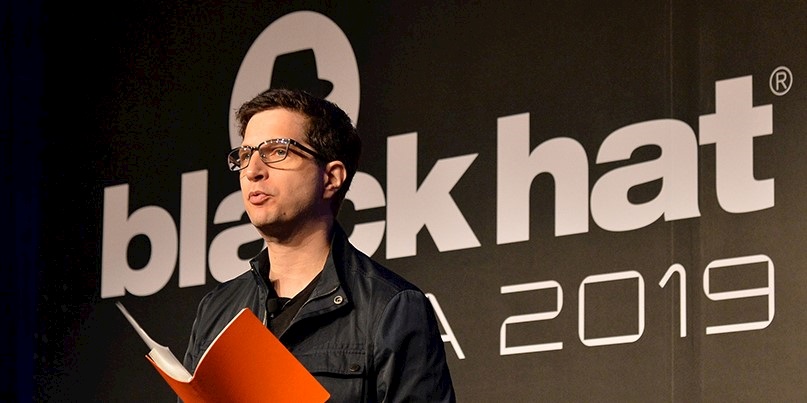A decade of showcasing talent at Singapore’s biggest hacking conference

Today marked the end of Black Hat Asia’s 10th year, as thousands of attendees from 85 different countries met to exchange ideas, learn new security research techniques, and network.
But the inception of the conference wasn’t without its teething problems. When Black Hat Asia first opened in 2000, the show ran for three years in Singapore before moving to Japan.
“When we started in 2000 we were here for only about three years, so we were really early in the market here – too early,” Jeff Moss, Black Hat founder and CEO, told The Daily Swig this week.
A show in Japan was followed by one in the Middle East, but Moss said there were issues still – Black Hat just wasn’t working in the regions, he said. They were too early in the game for Asia-Pacific.
Fast forward to 2013, and Black Hat Asia was back in Singapore – and the conference has been thriving ever since.
“Since we’ve been back it gets better every year. The region is getting better and better,” Moss said.
“It [Black Hat] used to be a big consumer show. People would consume security products here, but they wouldn’t innovate or create.”
Now, Moss says he is seeing Singaporean businesses and researchers developing sophisticated and impressive tools, much like those seen at other Black Hat events.
Indeed, the security landscape has changed dramatically across Asia in recent years.
In Singapore alone, a number of high-profile incidents – such as the 2018 SingHealth breach – has thrust data protection and information security into the limelight.
The Singapore government has shown its commitment to securing the island nation through a number of initiatives, including the creation of various bug bounty programs and military cyber defence schools.
Has this turned the wealthy island nation into a cybersecurity hotspot?
Maybe so, but Moss said Singapore was selected as the host nation for Black Hat Asia because of the country’s good business reputation and its rule of law.
“If you do choose here, you get stability,” he told The Daily Swig.
Knowledge and networking
Diversity is a key concern for the organizers of Black Hat. Annually, the company awards hundreds of scholarships for its three events held across the globe.
This year, for the first time, a female-only scholarship program saw 27 women given free passes to Black Hat Asia.
Fifteen scholarships were also given to local educators, such as university professors, and more than 50 passes were handed out to students.
With full passes costing up to US$2,800, it’s these programs that allow students to tap into knowledge and networking opportunities that would otherwise be out of their reach.
Vinamra Bhatia, a computer science student at National University of Singapore, is just one of the scholarship recipients.
“It’s a great experience,” Bhatia told The Daily Swig. “You can connect with so many people, be part of the briefings, and gain so much out of it. I had an amazing time.”
Computer science student Shreyansh Singh, studying at the Indian Institute of Technology (BHU) in Varanasi, India, agrees.
“I’ve seen a lot of Black Hat and DEFCON videos, and it’s always been a dream to attend [the events],” he said.
“I’ve met people here I always dreamt of meeting, and been in the talks which were totally awesome, and the networking part is really great – even just speaking to people you really admire can help you in your career.”
Kartik Sharma, a computer science undergraduate from IP University in Delhi, India, added: “This conference has been so great, there are people I’ve always dreamt of meeting who are here.
“I took some career advice from great people, I was really confused about what to do in the future whether to go for a certification or a masters, and I’ve met people who have helped motivate me to make a choice.”
The scholarships are also a way for Black Hat to give back to the community – with the cybersecurity skills gap ever widening, it’s more important than ever to encourage the next generation of security professionals.
“We have a shortage of talent,” Black Hat general manager Steve Wylie told The Daily Swig this week.
“The Singapore government itself has been quite outspoken about this, especially as they move towards being a more smart secure nation, and the shortage of security professionals they have in the workforce here.
“Black Hat is a premium event, and it’s all about getting that content to different groups who might not be able to afford it, like a student group, or just a group that’s maybe unrepresented.
“It’s a great way to help address the shortage of trained professionals we have in this industry. We believe we need to help with that cause.”
Black Hat Asia 2019 saw the conference’s biggest attendance yet. While still undeniably the smaller sibling of the US and Europe events, rough figures suggest more than 2,000 verified delegates.
So what’s next?
“Singapore is continuing to grow in importance for a number of reasons,” says Moss.
“Geographically, rule of law, and more and more data centres are being built here, so once you have all that infrastructure in place it’s not going away.”
RELATED The next arms race: Cyber threats pulled into stark focus at Black Hat Asia






